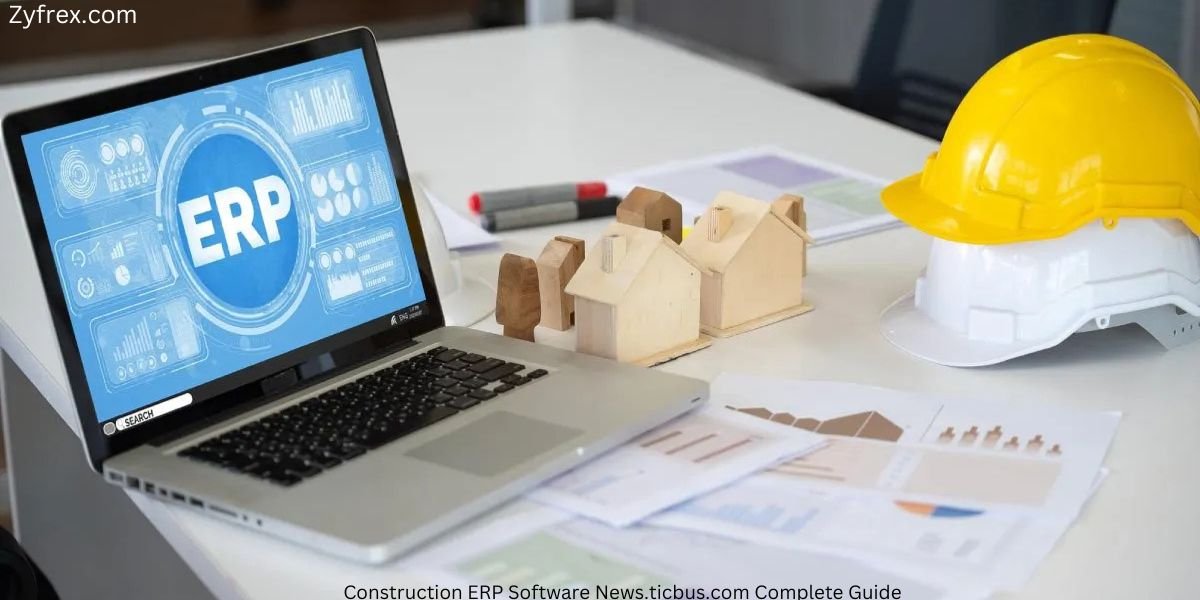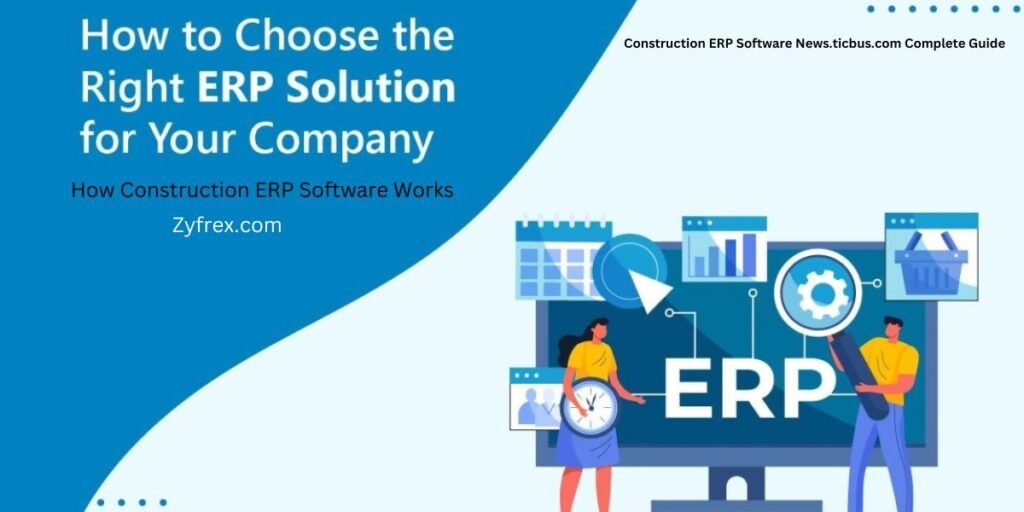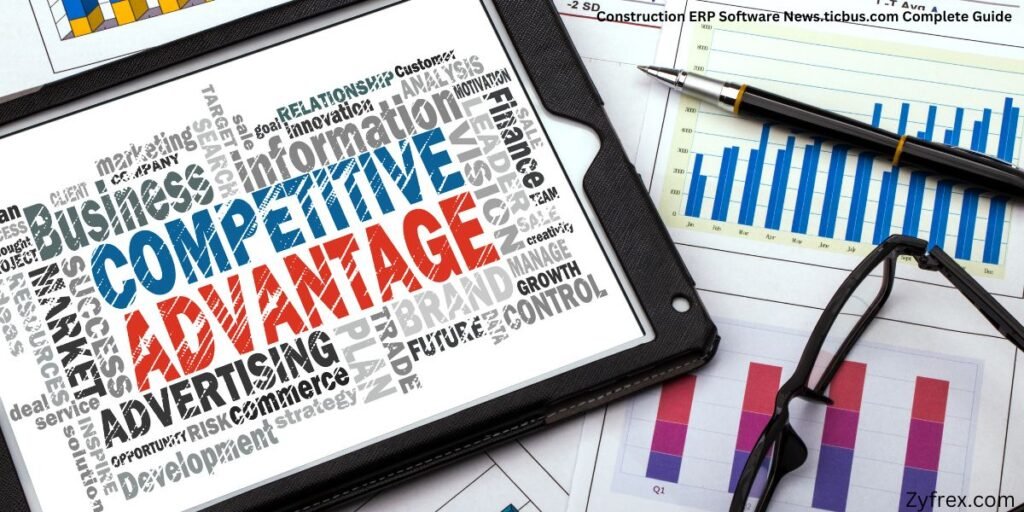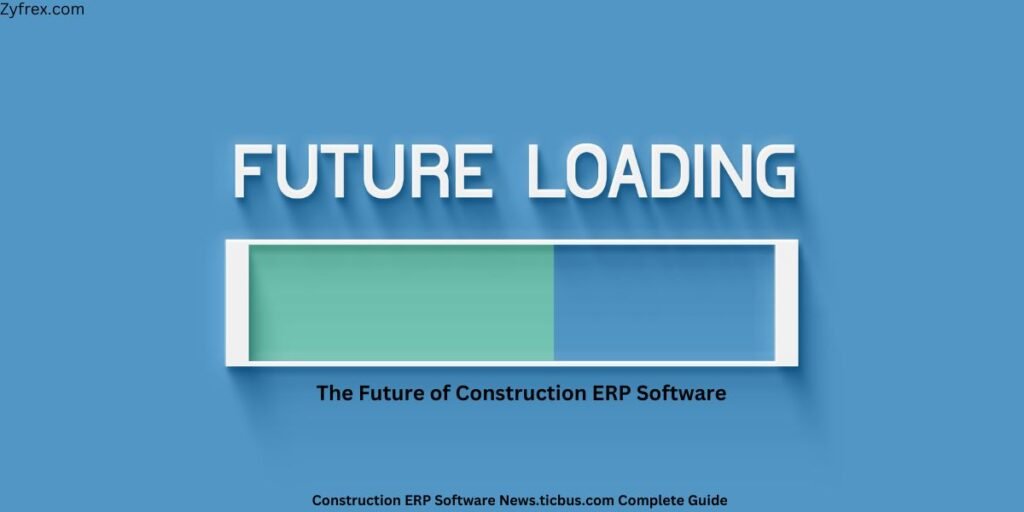
This is where construction ERP software comes into play, offering integrated solutions that streamline business operations. Construction ERP software news.ticbus.com is a platform that provides the latest updates, reviews, and trends in ERP software specifically designed for the construction industry. This guide covers what construction ERP software is, how it works, and why it’s essential for modern construction companies.
What is Construction ERP Software?
Construction ERP software refers to an integrated software solution that helps construction businesses manage various aspects of their operations. From project management and financial accounting to procurement and human resources, construction ERP software news.ticbus.com covers tools that help construction firms automate processes, enhance productivity, and improve decision-making.
At its core, construction ERP software consolidates various business functions into one system. It provides real-time data, ensuring that every department—from project managers to accountants—has access to the same information, making operations more efficient and collaborative.
How Construction ERP Software Works

Construction ERP software operates by combining several key modules that handle specific tasks within a construction business. Here’s how the system works:
1. Project Management
With construction Construction ERP Software News.ticbus.com, businesses can plan, schedule, and track the progress of their projects in real-time. It allows construction managers to assign tasks, set milestones, and monitor timelines, ensuring the project stays on track.
2. Financial Management
One of the critical functions of construction ERP software is handling financial operations. It manages expenses, budgeting, invoicing, payroll, and financial reporting. By offering real-time insights into financial performance, it helps construction companies make informed decisions.
3. Procurement and Inventory
Construction ERP software helps businesses manage the procurement process, including ordering materials, managing suppliers, and tracking inventory. It ensures that materials are available when needed, preventing costly delays due to stock shortages.
4. Human Resource Management
This module manages workforce-related activities such as employee attendance, payroll, and labor compliance. The construction ERP software news.ticbus.com reports frequently cover new advancements in HR modules that help construction firms manage large teams effectively.
5. Reporting and Analytics
Construction ERP software provides detailed reports and analytics that help companies analyze their performance. It generates reports on everything from project progress to financial health, giving businesses the data they need to optimize operations.
Read Also: How to Sikkim Game Login and How to Earn Complete Guide
How to Use Construction ERP Software
Using construction ERP software is straightforward, but it requires proper implementation and training. Here’s a step-by-step guide to getting the most out of construction ERP software:
1: Choose the Right ERP Solution
Before implementing ERP software, it’s essential to choose a system that aligns with your business needs. Construction ERP software news.ticbus.com provides reviews and comparisons to help businesses make informed choices.
2: Implementation
Once you’ve chosen the software, the next step is to implement it across your organization. This includes setting up the system, integrating it with existing tools, and migrating data.
3: Train Your Team
Training is crucial to ensure that employees know how to use the system effectively. Training sessions should be conducted to familiarize your team with each module.
4: Monitor and Optimize
After the software is in use, monitor its performance regularly. Use the reporting tools provided by the ERP software to identify areas of improvement.
Advantages of Construction ERP Software

There are numerous advantages to implementing construction ERP software, particularly those covered by construction ERP software news.ticbus.com. Here are the top five benefits:
1. Centralized Data Management
ERP software allows construction firms to store all their data in one place, ensuring that everyone has access to accurate and up-to-date information.
2. Improved Efficiency
By automating manual tasks such as payroll, invoicing, and procurement, construction ERP software significantly boosts efficiency and reduces errors.
3. Real-Time Reporting
The real-time reporting feature gives managers immediate insights into project progress and financial performance, allowing for better decision-making.
4. Enhanced Collaboration
Since all departments are connected through the ERP system, collaboration becomes easier, leading to improved project outcomes.
5. Cost Savings
Construction ERP software helps construction firms reduce operational costs by optimizing resource allocation, avoiding delays, and minimizing waste.
Construction ERP Software News.ticbus.com
- Latest Trends: Stay updated with the latest trends in ERP software, from AI integrations to cloud-based solutions.
- Software Reviews: Construction ERP software news.ticbus.com provides in-depth reviews of popular ERP platforms, helping businesses make informed decisions.
- Case Studies: Learn how other construction companies have successfully implemented ERP solutions and achieved measurable improvements in their operations.
- Guides and Tutorials: From how-to guides to best practices, the platform offers a range of resources to help businesses maximize the benefits of their ERP systems..
Read Also: How to MyWipro Login and What It Does Complete Guide
How Construction ERP Software Compares to Traditional Systems
Construction ERP software is vastly superior to traditional systems such as Excel spreadsheets or manual bookkeeping. While traditional methods require significant manual input and are prone to errors, ERP software automates these processes, saving time and increasing accuracy. Additionally, traditional systems lack the real-time reporting and analytics that construction ERP software offers, limiting decision-making abilities.
The Future of Construction ERP Software

As covered by construction ERP software news.ticbus.com, the future of ERP software in the construction industry is bright. With advancements in AI, machine learning, and data analytics, ERP systems are becoming more intuitive and capable of predicting project outcomes, further optimizing operations.
Conclusion
In today’s competitive construction industry, staying ahead requires more than just hard work—it requires the right tools. Construction ERP software offers a comprehensive solution for managing all aspects of a construction business, from project management to financials and procurement. With platforms like construction ERP software news.ticbus.com, construction firms can stay updated on the latest trends, find the right ERP software, and improve their operations. By embracing construction ERP software, businesses can streamline their processes, reduce costs, and ensure long-term success.
FAQs
What is construction ERP software?
Construction ERP software is an integrated platform that manages all aspects of a construction business, including project management, financials, procurement, and HR.
How does construction ERP software work?
It combines various business functions into one system, providing real-time data that helps businesses manage operations efficiently.
How can I choose the right construction ERP software?
Construction ERP software news.ticbus.com offers reviews and comparisons of various ERP platforms, making it easier for businesses to choose the right one.
What are the benefits of construction ERP software?
The main benefits include improved efficiency, centralized data management, real-time reporting, enhanced collaboration, and cost savings.
How does construction ERP software improve project management?
By providing real-time insights, task management tools, and progress tracking, construction ERP software helps businesses keep projects on schedule and within budget.







